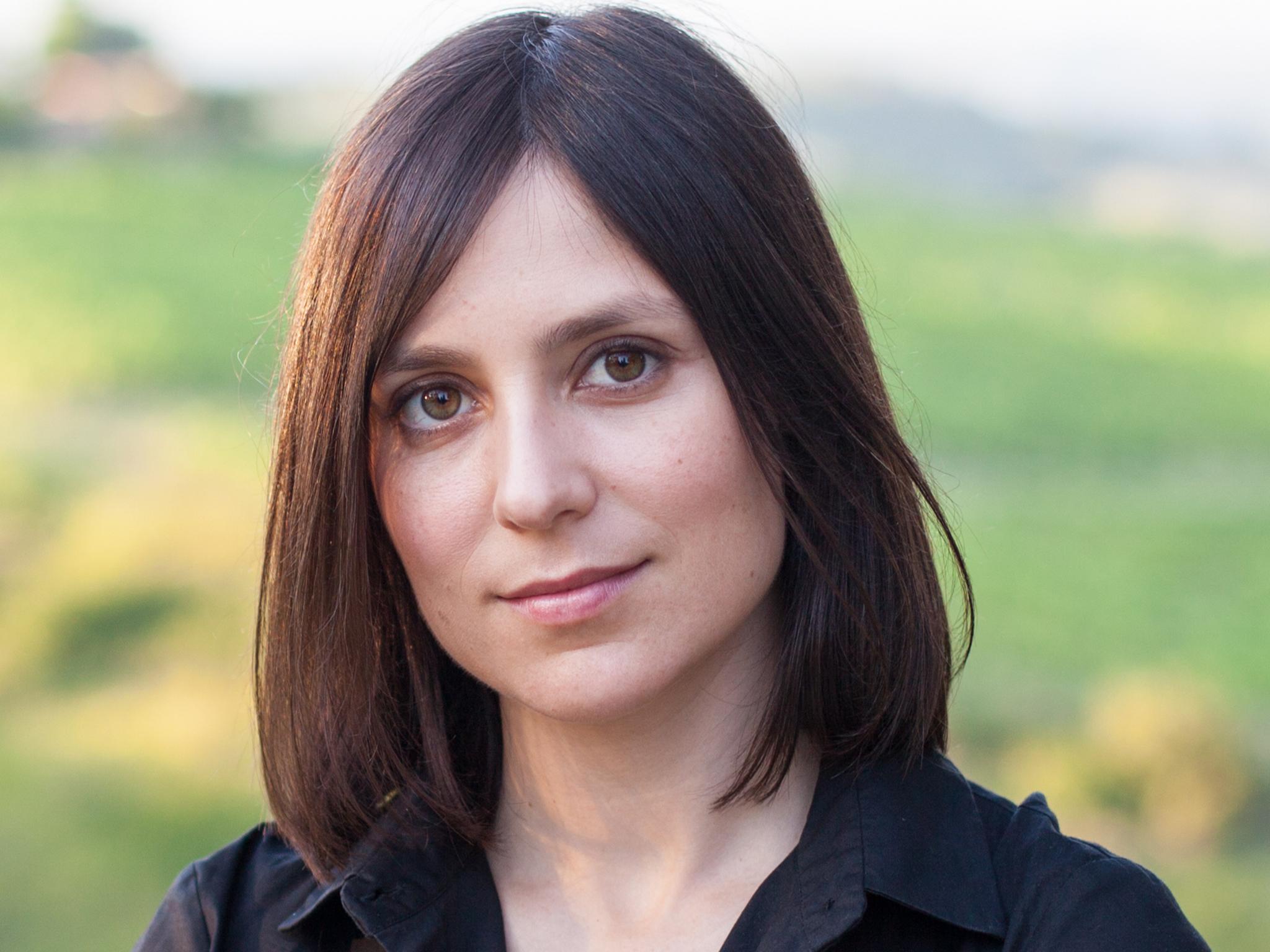Cork Dork: The strangest experiences of a woman who quit her job to become a wine-taster
Bianca Bosker did what many only dream of - she quit her job to become a sommelier. But she quickly realised that being a wine expert is a lot more involved than just quaffing Merlot

Quitting your job to become a professional wine taster is something more of us than would like to admit have daydreamed about of an afternoon at work.
But the world of wine-tasting isn’t so welcoming. If you don’t know your Pinot Grigio from your Merlot (other than that fact one is red, right?) then you are just a "civilian" to the experts, or cork dorks. And Bianca Bosker admits that is what she was when she quit her job as the tech editor of The Huffington Post to become a sommelier.
“I was a rank amateur, an outsider who didn’t deserve to join the inner sanctum of their tasting groups or work the floor," she tells The Independent.
“That process can make law school look like a relative cheap, easy walk in the park,” says Bosker. Along the way, she documented her adventures in the book Cork Dork, which explores the often bizarre and sometimes secretive world of wine-tasting.
Bosker quickly discovered that wine-tasting is a life-consuming job. The people she met took dance lessons to learn how to move gracefully across a restaurant floor, visited memory experts to better build their knowledge of alcohol, and divorced spouses to study soil types.
“I handed my life over to sommeliers and sensory scientists, and set out to hone my senses," she says. As a result, she was sober for about six hours a day on average. "Per their coaching, I gave up perfume, scented detergent, hard alcohol, coffee, anything but the bare minimum of salt, all liquids above a lukewarm temperature, Listerine, brushing my teeth whenever I wanted, and daytime sobriety."
But Bosker seems to think it was all worth it, and now understands the devotion wine buffs give to the drink. “Whereas before the only thing I got from a glass of wine was drunk, now I appreciate wine on an emotional and intellectual level," she says.
“I have even caught myself comparing them to artwork or literature in terms of the way they make us feel. I find that I can travel through time or place with a bottle of wine. When I’m homesick for Oregon, where I grew up, I open a bottle of Pinot Noir, and the aroma of wet leaves and dirt from my childhood comes rushing back to me.”
The Independent spoke to Bosker to find out more about her adventures in the world of wine-tasting.

What shocked you most about the world of sommeliers?
As I spent more and more time with sommeliers—drinking at late hours in their apartments, shadowing them in exclusive restaurants—I grew fascinated by a subculture I didn’t see reflected in coverage of the wine world. Most wine writing makes a life in this field seem utterly sybaritic, as though a hard day’s work is drinking Barolo less than ten years old. But for a beverage that’s ostensibly all about pleasure, the current generation of sommeliers puts themselves through an astonishing amount of pain. They’re proof that what most of us think we know about the wine is wrong.
I’ve always been obsessed with obsession, and these sommeliers’ wine mania sucked me in. I was also intrigued that these tasters had honed the sensory skills I associate with bomb-sniffing German Shepherds. I realised that next to them, I was living a life of sensory deprivation, not sensory cultivation. They made me wonder what I might be missing—in a glass of wine, and in life. I could put my nose into a glass of wine and, on a good day, tell you I was sniffing wine. For them, stories emerged from smells and tastes. I wondered: Could I do what they did? Could any of us? And what would change if so? I realized I didn’t want to just write about these “cork dorks”—I wanted to become one of them.
What have you discovered about wine that has blown your mind, and that wine novices need to know about?
Like a lot of us, I’d always assumed that people with super-senses had been born that way, and since I wasn’t one of them, I’d never be. It turns out any of us can hone our senses. If you’ve ever learned a new word in your life, then you have the skills to be a terrific taster. Start by putting meaning to smells. Sniff the herbs in your kitchen, and say their names as you do. You’ll begin recognising those same aromas in your wines. What’s interesting is that most of us never bother to cultivate our senses of taste and smell. Early on, Plato and Aristotle dismissed these as our leftover, animalistic senses, and ever since then we’ve largely ignored them. Sommeliers turn that conventional logic on its head.

As a part of my journey, I was determined to test whether my sensory training had actually changed me, so following the model of a landmark study on wine expertise, I worked with neuroscientists to scan my brain while I sipped wine. What this research reveals is not only that we can train our senses, but also why we should bother to do so. Cultivating these capabilities is a prerequisite to fuller, deeper experience. In response to the same flavors, a novice’s brain stays relatively dark, where a trained taster’s lights up. When we attune ourselves to flavor, we engage our more critical, analytical, and higher-order brain functions. Information that passed by unnoticed instead gets analysed, explored, and helps inform our worldview.
We’ve all heard of “mindfulness.” But through wine, I came to value this mindset I describe as “sensefulness:” it’s by tuning into our senses that we can better make sense of the world around us.
Why is the wine industry so archaic and strange?
Some traditions that seem puzzling to outsiders actually make a lot of sense. Take blind tasting for example: a sommelier is given a glass of wine and must identify, by flavour alone, what year, from what grape, how, and where a wine was made—down to some tiny corner of the planet. That can seem downright magical—or, less generously, like a glorified party trick.
Yet this skill requires both physical training and incredible mental discipline in order to do what most of us do not: tune out all the things designed to play to our cognitive biases, so we can stay true to what’s actually in front of us. I came to realise that too many of us settle for second hand sensing, letting price, brand, or flowery descriptions substitute for our own judgments. The discipline of wine tasting—and the lessons in Cork Dork—can help us be more honest to our own felt experience.
Sommeliers are often given a bad rap. What would you like to say in their defence?
I apprenticed in Michelin-starred dining rooms as part of my sommelier training, and I was impressed to discover that restaurants are judging you just as much as you’re judging them. The top restaurants aim to Google all their guests before they come in, and keep detailed notes on their likes, dislikes, tantrums, importance to the restaurant, and so forth so they know how to treat them. Spend handsomely on wine, and you might be labelled a “Wine PX,” short for “personne extraordinaire.” Get huffy, and you just might be labelled, “HWC,” short for “handle with care.”) Other somms and servers study jewellery or luxury watches to gauge your potential price range. Sure, there is a profit motive at play. But the best sommeliers use all this information and more to read what you want emotionally out of your meal, so they can provide that along with a wine. Much more than cork pullers, they are story tellers.
Are there sommelier cliques? Like ‘cool’ sommeliers or ‘old school’ sommeliers.
“Cork dork” is the nickname people in restaurants give to the most obsessed, knowledgeable, and dedicated oenophiles among them. Cork dorks have a certain lingo for the wines that people order: “unicorn wines” are rare, small-production gems that are oenophile status symbols. “Cougar juice” refers to the rich Argentinian Malbecs, oaked Chardonnays, and ultra-green New Zealand Sauvignon Blancs ordered by a certain type of women. Their husbands go for what are termed “BSD bottles”—short for “big swinging d***”—that boast big flavour, pricetags, and point scores from famous critics.
Cork dorks operate in rarefied circles that take work to access. I finally gained admission into an elite blind tasting group run by aspiring Master Sommeliers—a sort of secret society hiding in plain sight at one of New York’s top restaurants—under one strict condition: given my level, I could taste the wines and observe them tasting, but I couldn’t speak. Just to give you an idea of how intense it was, when I made the mistake of giving one sommelier feedback on his tasting, he sent be the following email: “I wanted to apologise for being a total d*** when we tasted together at Del Frisco’s,” the guy’s message to me began. “Tasting is this sacred thing we do. It is like wings for paratroopers. If you don’t have them you’re not part of the troop and you’ll never understand why. When you began to give me feedback, I thought to myself, ‘Who the f*** does this girl think she is?’”
What do you hope readers will take from your book?
While I was working as a sommelier, every night guests at the restaurant would tell me to “bring a glass of whatever because I can’t taste the difference.” But they can! And if it was a slow night, I’d bring them two glasses of radically different wines, and show them to to discern the nuances between them. If I was lucky, that was a conversation I could have once, maybe twice a night, on very slow nights. I see Cork Dork as a continuation of the conversation that I used to have as a sommelier with guests, only instead of having it with one or two tables at a time, I can have it with tens or hundreds of readers. For too long the wine world has told people what to taste, instead of showing them how to taste for themselves. With a greater confidence in our sense of taste comes a greater confidence in our taste in all things. I know because I’ve felt it.
Join our commenting forum
Join thought-provoking conversations, follow other Independent readers and see their replies
Comments
Bookmark popover
Removed from bookmarks